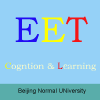-
Maslow's hierarchy of needs
普通类 -
- 支持
- 批判
- 提问
- 解释
- 补充
- 删除
-
-
Introduction
ALL HUMANS HAVE BASIC NEEDS, according to Maslow’s Hierarchy of Needs (Maslow, 1987). This hierarchy consists of five levels of needs that humans try to obtain. Higher levels will not be attempted or reached by an individual without first meeting the lower,





Roll over the pyramid to see more detail
of each level of the hierarchy.prerequisite levels. Maslow argues that people’s most basic needs are those necessary for survival: food, water, shelter and warmth. Once these needs have been met a person is then able to address their needs at the next level, the need for safety and security. As each level is obtained in succession, the individual is able to move to the next higher level. The ultimate goal for each person is to reach the level of self-actualization, where one seeks to discover and develop his or her own unique strengths and talents.
-
Inversion of Maslow's Hierarchy
The goal of an educational institution is to produce self-learners. As our educational system in structured presently, students have difficulty obtaining self-actualization. Students are placed in classes based on their mastery of specific skills at certain levels. As Norman Kunc (2000) argues, the educational system has therefore partially inverted Maslow’s Hierarchy, so that students are expected to obtain the level of self-esteem (mastery of skills) before being allowed to obtain belonging. Thus, Kunc states, children are required to learn their right to belong (Kunc, 200, p. 83). As our system requires:


.gif)


The hierarcy has been inverted, so that students are expected to achieve self-esteem before belonging.STUDENT => Skills
=> General classroom
The hierarcy has been inverted, so that students are expected to achieve self-esteem before belonging.
Any students who have not mastered particular skills will invariably be outside of the general classroom and therefore segregated and excluded from others. The third level of Maslow’s hierarchy, belonging, is then difficult to obtain.-
Effects of Maslow's Hierarchy Inverted
When an educational system makes belonging and acceptance conditional on achievement of skills and self-esteem, students have only two options: resigning to a self-fulfilling prophecy of inadequacy or choosing to gain acceptance in only one particular area (e.g. art or sports). Either way there are many serious, negative consequences that could occur. The consequence for feeling inadequate may be dropping out of school. Over-achievers may
feel a need for perfectionism, resulting in severe emotional distress. Other effects might include turning to gangs for acceptance or suicide torelieve the stress of seeking acceptance (Kunc, pp.86-87).
When students do not feel as if they belong, negative consequences may occur.-
Reinstating Maslow's Hierarchy
Our educational systems must make a shift in thought and practice to reinstate and realize Maslow‘s Hierarchy. If students are to obtain the highest level of human needs, self-actualization, we must provide students with opportunities to belong before expecting them to achieve mastery of skills. This new organization of the system would call for an inclusion model, in which all students of various skills
and abilities are afforded the right to belong in the same class environment. Such a system would be envisioned as the following (Kunc, p. 80):
Students who feel belonging will more naturally develop self-esteem.STUDENT => General classroom => Skills (with support)
The result of this educational system would be great benefits for all learners. All students will learn to be accepting of and celebrate diversity. Once students have gained acceptance theyare able to achieve self-esteem and, ultimately, self-actualization.
-
Relation
Claire Roush, Resource Specialist
-
-
- 标签:
- needs
- skills
- self-esteem
- educational
- belong
- acceptance
- level
- hierarchy
- maslow
- students
- kunc
-
加入的知识群:



学习元评论 (0条)
聪明如你,不妨在这 发表你的看法与心得 ~